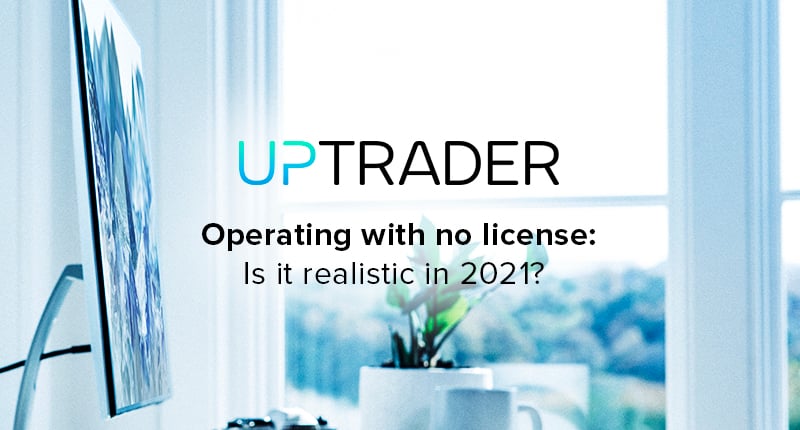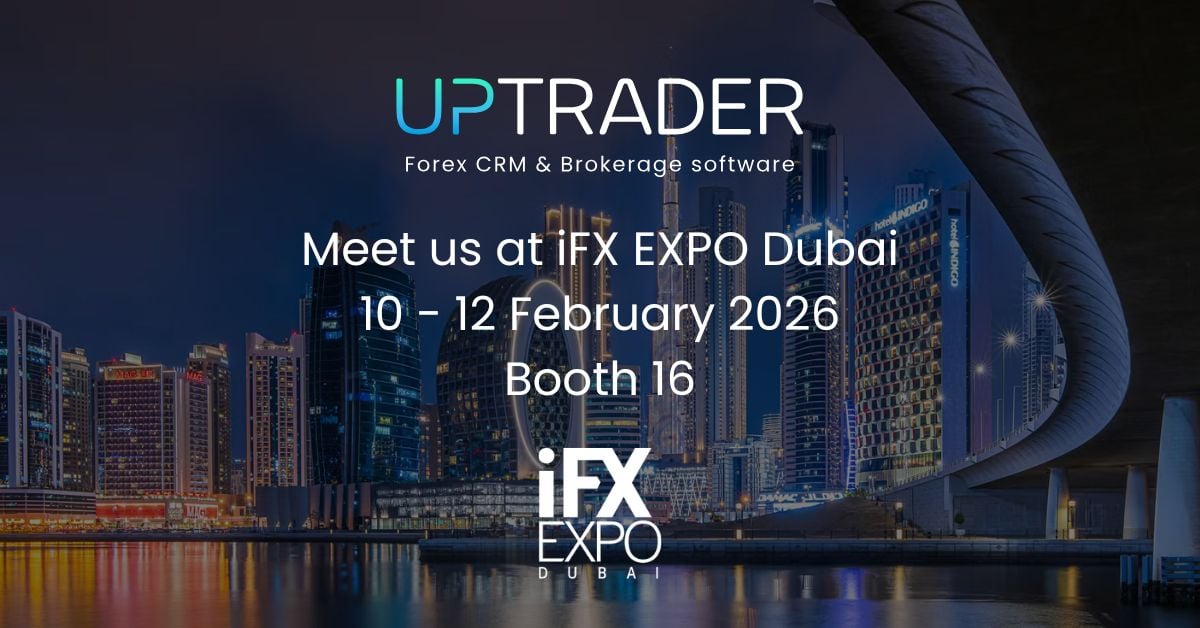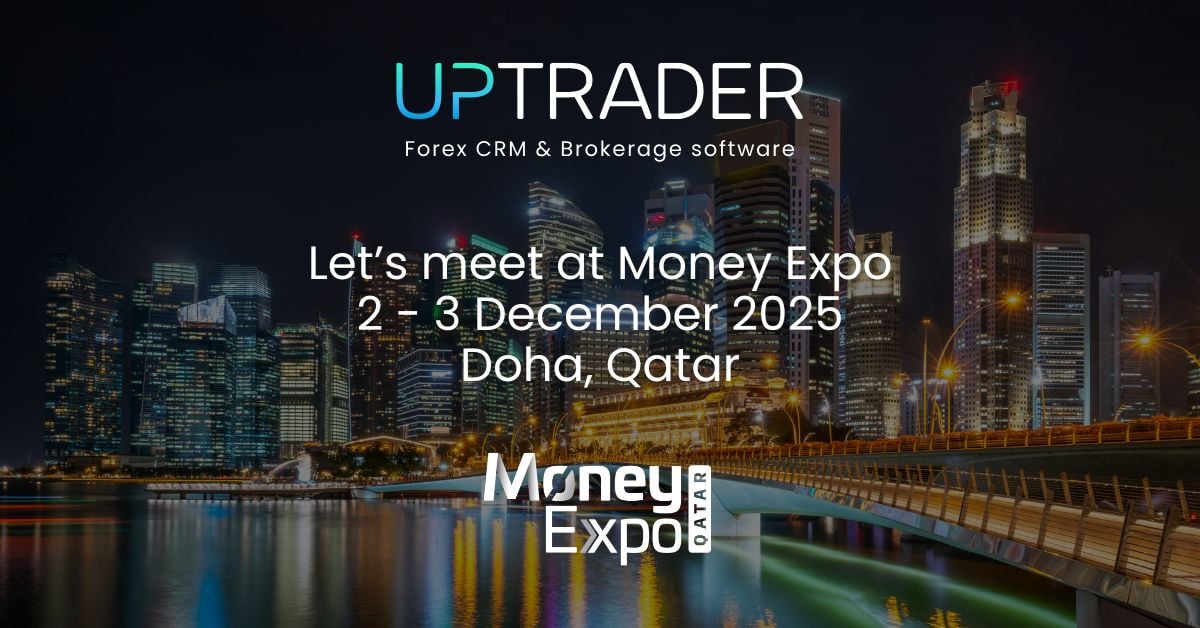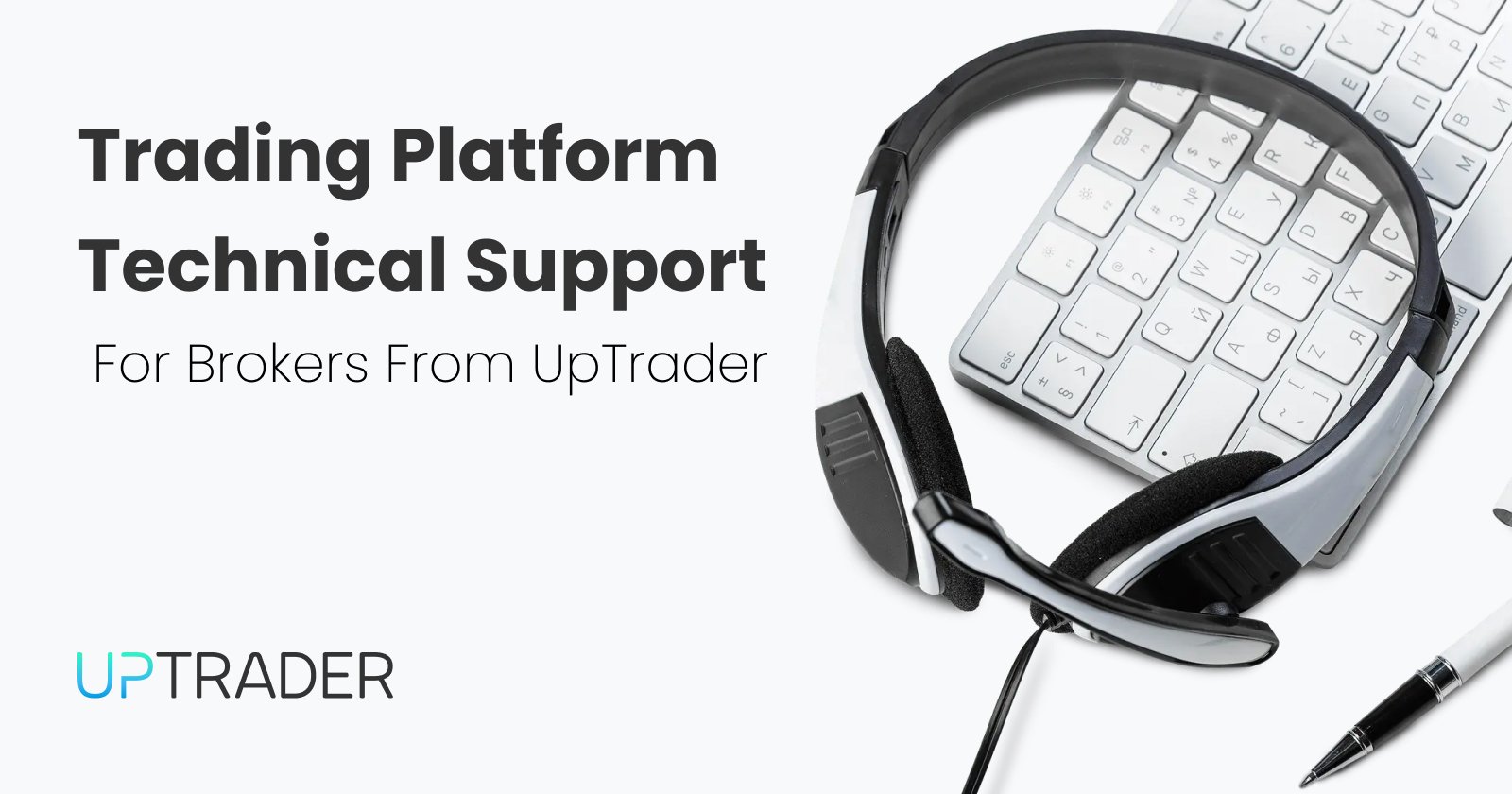Operating with no license: is it realistic in 2021?

Share this publication:
The situation with licensing in Forex has drastically changed over the last five years: above all, new regulations hit the ability of unlicensed companies to accept payments, thus creating a significant obstacle for their operation
Originaly posted on Financefeeds
By Vasily Alexeev, CEO UpTrader.io
In this short review, we have covered the viable operating models of Forex brokers today. Perhaps surprisingly, despite the stricter legislation, there are always ways to work around the rules.
No licensing
Amid the sweeping restrictions imposed on unlicensed brokers, it would seem that this model is obsolete, but such brokers are still there in numbers, and new companies continue to enter the market quite successfully. So, is it possible to work without a license? Easy: it takes one month and $2–3K to register a business in, say, the Grenadines, and only your passport is required.
There’s a downside, however—you won’t be able to accept payments through the banking system, bank card transfers, and well as advertise your business legally. You’ll also likely face problems with popular payment systems, you won’t be able to operate officially in jurisdictions where providing Forex services without a license is prohibited, and there are fewer and fewer counties where licensing is not a requirement. However, it’s not all bad. China and Thailand have long banned Forex, but hundreds of brokers continue to exist there. They work with local payment systems and operate perfectly fine. These systems work almost with any brokers—the key is to reach an understanding. Other than that, cryptocurrency payments are getting more popular every year.
There’s also the issue of trust—it inevitably arises because of the stigma attached to an unregulated broker. As a proof of reliability, brokers can connect to Serenity—it’s a smart contract-based blockchain escrow. Serenity guarantees the security of deposits and completely eliminates any potential misappropriation of funds in the accounts of clients. Serenity has already earned the trust of a wide audience of traders. The system is easy to integrate, and with the growing popularity of cryptocurrency, it’s important that all payments in Escrow can be processed through the crypto exchanger SerenityPay.io. It’s a win-win situation for everyone.
“Offshore lite” licensing
The second option is more complex and more expensive: registering your broker with at least some kind of legality. The most popular licenses are in Seychelles and Labuan (Malaysia). You’d have to pay €50–70K, and the registration would take about nine months. As a result, the broker receives a permit to operate in these countries.
The access to banking and the international transfer system SWIFT allows brokers to attract bigger clients. Such a license also means access to liquidity providers, and hence better trading conditions, which gives a competitive advantage. A Labuan license means access to Malaysian banks.
The main downside—such a license allows operating only as an STP (Straight Through Processing) broker. If a broker plans to work with A-book, STP is a plus. However, if we’re talking about a B-book broker or a hybrid model, this would make things difficult. Another downside is the annual expenses on staff and office in these countries, as it’s required by the jurisdictions: about $70K a year.
It’s also worth noting that these licenses still don’t give access to bank card transfers.
Mastercard doesn’t accept transfers from brokers without European or American licenses, Visa still does, but more and more reluctantly, and is expected to follow the example of Mastercard. Plus, these licenses don’t open the way for official advertising.
The most valuable licenses
The third path, the most valuable and most expensive, is acquiring a European or American license. The price tag starts at €1 mln, the waiting period is at least two years. As a rule, during this time, the company passes all conceivable procedures of business auditing, upon the completion of which a license will or will not be issued for your business. The upsides are obvious—all payment methods: SWIFT, VISA, Mastercard, any payment systems. All kinds of advertising: online, radio, TV. This option is obviously great for reputation and trust, and so forth.
The downsides are also there: aside from the high price, licensing also imposes restrictions on the trading conditions: the leverage is limited to 1:50, and it’s prohibited to offer and advertise bonuses. Any violations can result in massive fines. Revoking of the license is also a reality: in 2019, Russia’s central bank terminated the licenses of four brokers out of five.
The bottom line is that there always ways to operate despite the stricter regulations.
Read more about how to choose jurisdiction?







